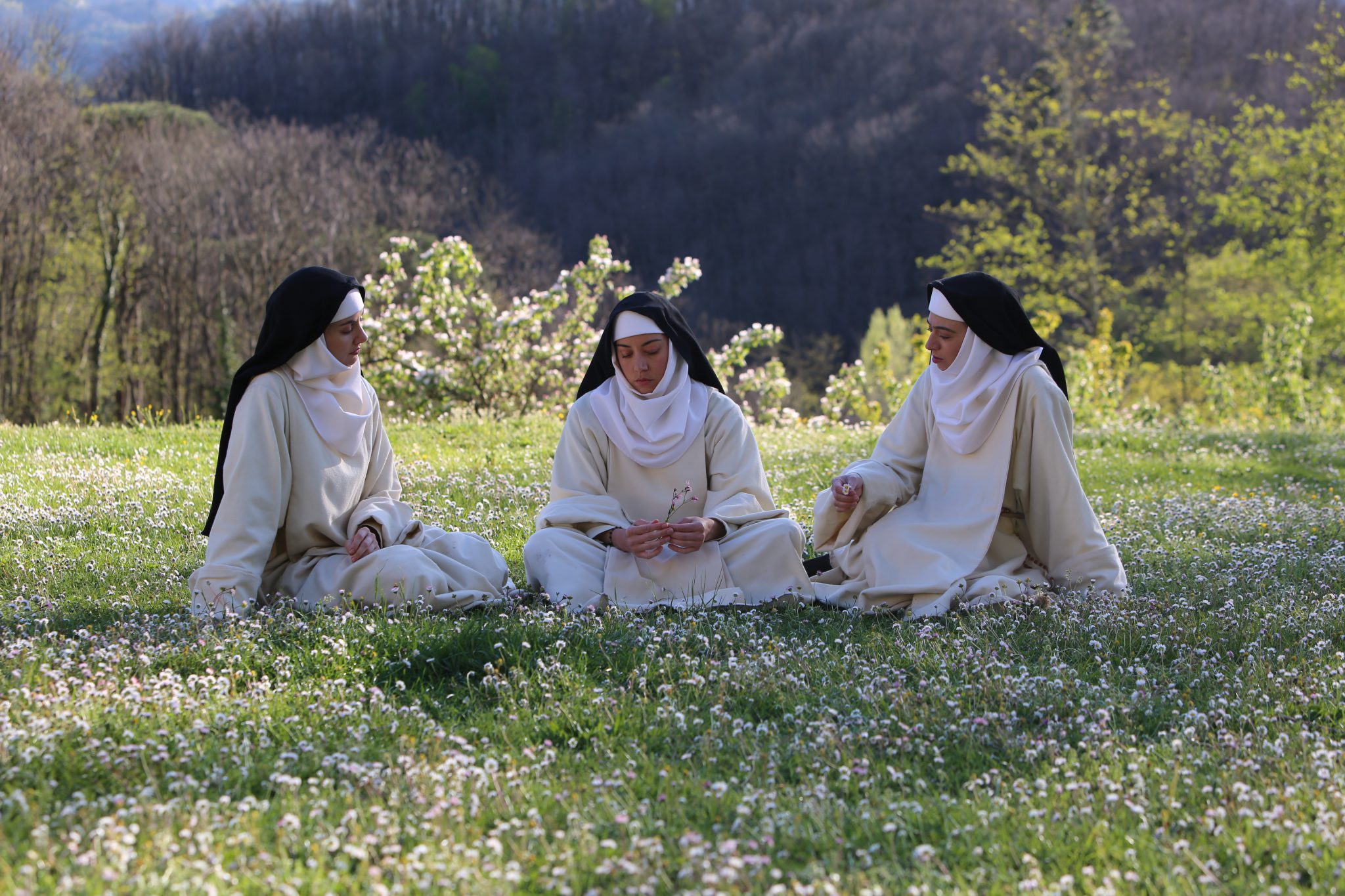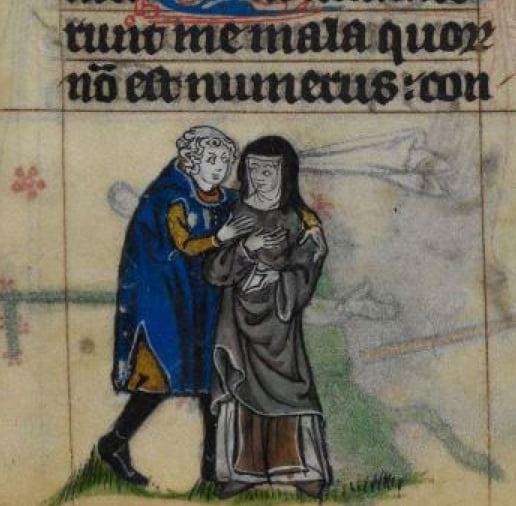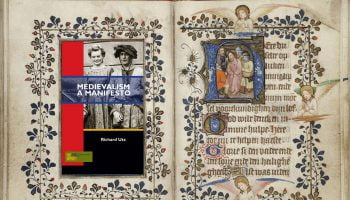 Review: The Little Hours
Review: The Little Hours
Director: Jeff Baena
Runtime: 90 min
Rating: R (US)
Cast: Alison Brie, Kate Micucci, Aubrey Plaza, Dave Franco, John C. Reilly, Molly Shannon
Availability: Limited release starting June 30
Content warning: Very minor spoilers below, plus a brief discussion of a sexual assault depicted in the film.
When the trailer advertised The Little Hours as “Based on The Decameron by Boccaccio,” I was as skeptical as I always am. “Based on a True Story?” Right.
But I’ll be damned; this is one of the most faithful adaptations of a piece of medieval literature yet put to screen. And it’s fun—in a deeply weird, occasionally disturbing, Aubrey Plaza sort of way.
It would be impossible to make a film of the entirety of Giovanni Boccaccio’s 1353 opus The Decameron. This is because, like A Thousand and One Nights or Geoffrey Chaucer’s The Canterbury Tales (which is, in many ways an adaptation of The Decameron), it is a collection of short stories rather than a single narrative. So, for those familiar with the Italian original, The Little Hours presents the first story told on the third night.
Yep. That one.
Like any good adaptation, this film takes the original material—a salacious story of a group of very naughty nuns—and expands on it in meaningful ways. We discover that the cookie-cutter “bad nuns” presented for comedy in the original Italian are remade into flawed characters wrapped up in their own stories: sometimes tragic, sometimes funny, always deeply odd.
And on a few occasions, I found myself doing something that I’m not sure I’ve ever done at a medieval film—genuinely caring about, and understanding, the characters and their lives, beyond whether they would succeed on whatever quest the movie presented. Medieval films will often strive to have you cheering for the (almost always male) hero as he rides to glory with lance in hand. But in The Little Hours, I found myself genuinely feeling for the heroines (if you can even remotely call them that), as they went through their days in the nunnery, and felt like I was able to understand what they had to do to get by.
Speaking of cheering for the hero, perhaps the film’s best analogue is Brian Helgeland’s cult classic A Knight’s Tale, which (sort of) does for Geoffrey Chaucer’s Canterbury Tales, what The Little Hours does for his Italian counterpart. Both are films full of anachronisms (and, let’s be honest, what historical film isn’t). But where these two differ from the norm is that theirs are anachronisms selected with purpose and delivered to make a point.
In A Knight’s Tale, it was Queen’s “We Will Rock You” sung from the stands of a joust—delivered with gusto to show the similarity between medieval tourneys and modern sporting events. In The Little Hours, it takes the form of modern dialogue (rich with fierce expletives) rather than the cod-Shakespearean dialogue that encumbers nearly every other film set in medieval Europe. And similarly, the actresses use their own American accents rather than Received Pronunciation-British— the standard signifier of “premodern historical film,” whether set in London, Paris or Jerusalem. This, together with the weirdly wending, clearly largely improvised dialogue (all the rage in comedies these days) made the characters feel all the more relatable, their friendships and rivalries more honest. And this is itself honest to the original, in a way—Boccaccio wrote his work in his native vernacular Florentine rather than high-culture Latin.
And it’s not just the dialogue that makes a film set in 1347 seem very of-the-moment. It owes a debt to comedies like Bridesmaids, which revel in tearing off the veil and showing women can be just as funny, brash, gross, and violent as men. In alternating moments, I found myself loving, and deeply disliking almost all of the characters. And The Little Hours takes that to some disturbing lengths, showing three separate occasions in which one of the characters is nearly raped, always with one of the women as the rapist. But those moments are not played for laughs; the scenes quickly turn from absurdist to horrific once the viewer begins to really understand what is happening.
There is one small, heartbreaking subplot that that seems even more prescient than this—look away if you wish to remain entirely spoiler-free.
None of the nuns seem to have chosen a life of celibacy and contemplation. One in particular, sister Alessandra (played by Alison Brie), we discover has been placed in this convent against her will by her father. And though her father has enough money to give generously to the convent, he does not have enough to give her the dowry—and thus, husband and family—that Alessandra desperately wants.

In this moment, I was struck by a small similarity with another female-centric cultural event currently in the zeitgeist—The Handmaid’s Tale. Each is, at its core, a story about what becomes of women’s agency when they are trapped in a rigid, patriarchal, sexually repressive social structure. The Handmaid’s Tale primarily reveals its protagonist’s unbroken spirit through a venomous, expletive-filled inner monologue. The Little Hours lets that inner monologue out of its cage, to wander the medieval countryside hurling abuse at those, like the gardener in the initial scenes, with even less power than the women. The Handmaid’s Tale grapples with this patriarchal trap for horror’s sake. The Little Hours does so for comedy—and it is a comedy. This is not just because of the absurd jokes around so many turns, but because it is obvious in the medieval world, they were able to carve out a modicum of happiness; the punishments for violating their Rule always seem to be worth the fun.

To be clear, this isn’t absurd caricature. It may surprise you to find that the Middle Ages is full of accounts of medieval women and men of the cloth violating the strict proscriptions of their profession. As Graciela S. Daichman writes in her book Wayward Nuns in Medieval Literature:
The reported cases of errant behavior in the nunnery are far too numerous to list in their entirety. Profligate nuns were not a rare phenomenon in the Middle Ages; they were, instead, a matter of intense concern—also dismay and disgust, even—to the guardians of the spiritual life and the laughingstock of countless others.
The dirty truth of medieval monastic life was that there were many, like Alessandra, who did not choose it out of piety or devotion. Some did not choose it at all, but were given by their families. Knowing this, of course many of these women and men would rebel against the yoke they had been placed under, and find what love, happiness, and sex that they could. There’s something profoundly heartbreaking and beautiful about that.
And that’s the real accomplishment of The Little Hours. Sure, the comedy doesn’t always quite work, and there are a few anachronisms that made even my teeth grind (witches? torture? yawn…). But its magic is that it revealed a side of the Middle Ages that had yet to be put on film, and caused me not just to root for, but to connect and empathize with someone who (might have) lived six centuries ago. Bridging the gap between the past and present is what historical film can do best. That The Little Hours accomplishes that feat—especially in such an unexpected, bizarre and filthy frame—means it deserves to become a cult classic in its own right.
The Public Medievalist does not pay to promote these articles, so we would love it if you shared this with your history-loving friends! Click to share with your friends on Facebook, or on Twitter.




Comments are closed.